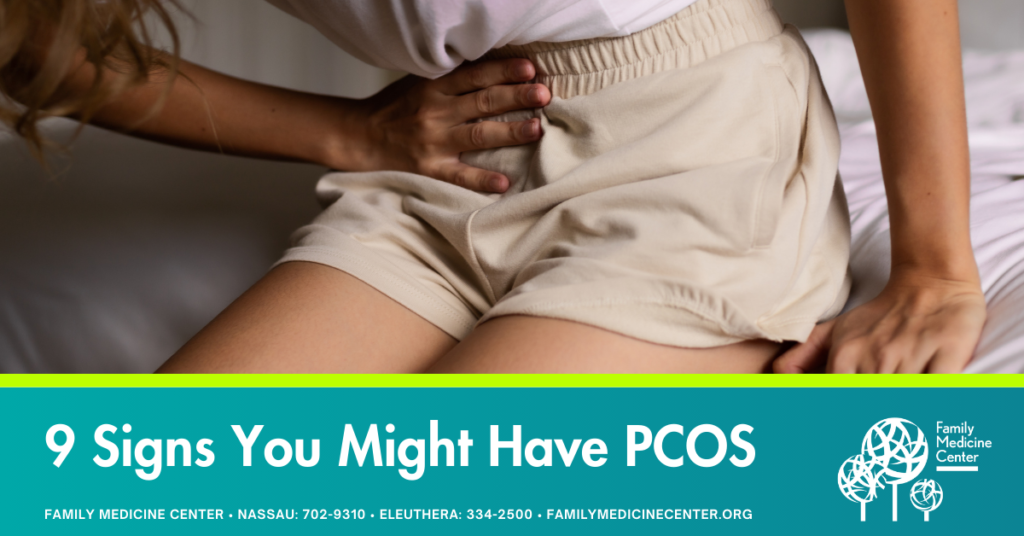PCOS stands for Polycystic Ovary Syndrome, a hormonal disorder that affects the ovaries. It’s characterized by irregular menstrual cycles, elevated levels of androgens (male hormones), and the formation of small cysts on the ovaries. It mainly affects women of reproductive age, typically between late teens and early 40s.
The exact cause of PCOS is not known, but it can be influenced by genetics and lifestyle factors, such as diet and exercise. Management often involves lifestyle changes, medication to regulate hormones, and, in some cases, fertility treatments.

PCOS can appear differently in individuals, but common signs and symptoms include:
1. Irregular menstrual cycles.
2. Excess hair growth on the face, chest, or back.
3. Acne and oily skin.
4. Weight gain or difficulty losing weight.
5. Thinning hair or male-pattern baldness.
6. Ovulation problems leading to infertility.
7. Pelvic pain.
8. Darkening of skin around the neck, groin, or underarms.
9. Mood changes or depression.

